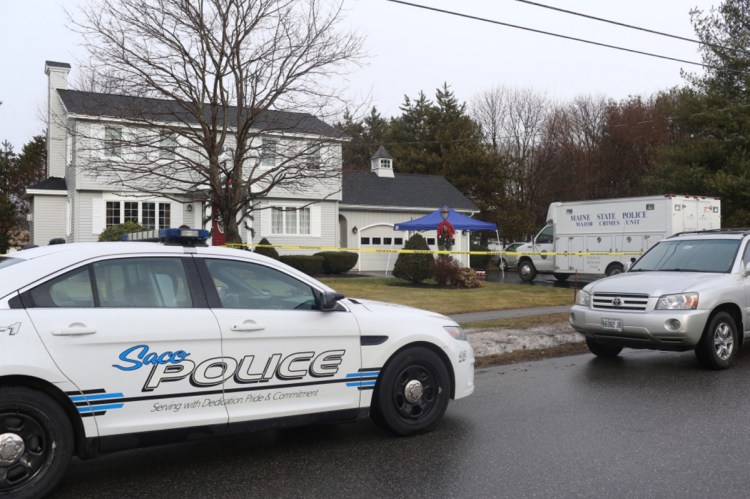A New Hampshire man is appealing his conviction and life sentence for trying to kill his wife during a 2014 home invasion in Saco.

Gregory Owens
Lawyers presented oral arguments in the case Monday at the 1st U.S. Circuit Court of Appeals in Boston.
A federal jury found Gregory Owens guilty in 2016 of both interstate domestic violence and using a firearm during and in relation to a crime of violence after a two-week trial in U.S. District Court in Portland. He was sentenced to 20 years on the interstate domestic violence charge, and the life sentence was imposed above federal guidelines on the firearm charge. He is currently being held in a prison in Pennsylvania.
Owens has denied that he shot Rachel Owens, his wife of more than three decades, as his affair with a mistress began to unravel. In his appeal, he argued that police violated the Fourth Amendment when they entered his property the night of the home invasion to see if his car was still warm. He also challenged search warrants in the investigation and said the evidence collected should not have been allowed at trial, and he has appealed his life sentence.
“There’s a significant amount of taint to the other evidence that flows from that initial search,” Owens’ attorney, Sarah Churchill, said during oral arguments.
The government argued that feeling to see if his car was warm was not illegal, but that even if it was, the police had other cause for the search warrants.
“There was ample evidence, really overwhelming evidence at trial, regardless of whether this notion of touching the car and it being warm was introduced,” Justice Department attorney John Pellitieri said.
The judges peppered both sides with questions. They asked Churchill about other evidence in the case, including DNA evidence that almost certainly matched Owens. They also grilled Pellitieri about the officer’s decision to touch the car in the driveway. The hearing lasted roughly 20 minutes, and the appeals court could now take months to issue an opinion.
Owens, a retired Army sergeant major and sniper-trained marksman, drove from his house in New Hampshire to the home of Steve and Carol Chabot in Saco on Dec. 18, 2014. Rachel Owens was visiting their friends and sleeping in a guest bedroom.
Wearing a black mask, Owens broke into the Chabots’ home by smashing the windows of two doors. He ran upstairs toward the bedrooms with a pistol in hand. He first came face to face with Steve Chabot, who retreated to the master bedroom. Carol Chabot barricaded herself behind a door in a third bedroom, and the gunman unsuccessfully tried to force entry. He then went to the bedroom where Rachel Owens slept and shot her three times. He returned to the master bedroom and fired six shots through the door, hitting Steve Chabot three times. The gunman fled, and Steve Chabot called 911 at 2:47 a.m.
Both victims survived. Rachel Owens testified at the sentencing hearing about the lasting impact of her injuries, which included a bullet lodged in her head.
Police pulled over Owens about three hours after the 911 call as he drove his Hyundai Santa Fe in Hudson, New Hampshire. Investigators later collected DNA evidence from him that matched DNA on the outside door of the Chabots’ garage.
The prosecution told the jury that Owens planned to murder his wife to escape the implications of her rapidly advancing early dementia, so he could be free to pursue his longtime mistress. That woman, Betsy Wandtke, testified at the trial that she had discovered Owens had not left his wife years ago, as he had told her. She also came to doubt his claims about being a military operative who went on frequent covert missions overseas, stories he told her to explain his frequent absences.
The jury deliberated for three hours before delivering the verdict in February 2016. At the sentencing hearing later that year, U.S. District Judge Nancy Torresen said the time was warranted given the cold-blooded nature of his crimes.
“You’re deceitful, and you’re mean,” Torresen said. “I don’t see any possibility of you rehabilitating yourself.”
Megan Doyle can be contacted at 791-6327 or at:
mdoyle@pressherald.com
Twitter: megan_e_doyle
Send questions/comments to the editors.




Comments are no longer available on this story